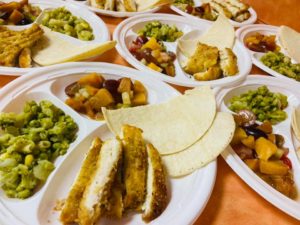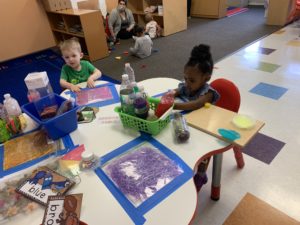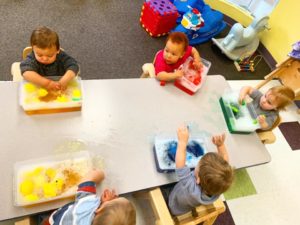What is it that distinguishes Reggio-inspired learning?
An array of lists from Reggio-inspired schools across the globe distill the program into a relatively small number of key elements. These typically include:
Student Interest: Learning stems from children’s interests and curiosity.
Relationships as Key to Learning: Learning emerges through relationships with others including peers, teachers, and other members of the community.
Self expression and Creativity: Reggio has a notion of “100 languages” or the many ways children express their ideas, feelings, and creativity. Children deserve experiences engaging them in a wide range of materials and modes of creativity.
Project-Based Learning: Learning occurs through short and long terms projects and teachers create the conditions for children to become engaged in these projects
The Physical Environment As a Central Teaching Element: The classroom is considered the “third teacher” (parents are first and school educators are second). As such, the physical environment of schools is a critical contributor to learning.
The Flexible Use of Time: Children are given time to become deeply immersed in activities of interest to them.
Documentation and Sharing: A record is kept of the process of learning for children to review and see their own progress, as well as to share with others.
Parents as Partners: Parents are respected as the primary influences on children’s learning and are actively engaged in life at school.
While I love each and every one of these key elements of Reggio-inspired learning, there is another central principle, rarely highlighted as a core to the approach, that inspires me even more.
The Reggio approach emerged out of inspired parental love and hope.
What is now known around the world as Reggio-inspired learning began in the days following World War II when a group of parents in the war torn region of Reggio Emilia in northern Italy banded together to build a preschool. Having just withstood the horrors of Nazism and fascism, they wanted a school that would prepare their children to stand strong against oppression, injustice, and inequality.
And so, for me, the core of Reggio-inspired learning is to strive to recreate the inspired parental love and hope that existed at the very beginning in Reggio-Emilia. It is our role as educators to support parents to prepare children to stand strong against the oppression, injustice, and inequality they may experience in a future we cannot yet even imagine. How to do so requires ongoing reflection and creative collaboration. As a beginning, at Discovery Village we have embraced the core value of caring – caring for self, others, our communities, and our world. We spent the entire month of February in interdisciplinary projects and activities focused on caring.
Putting values and character at the core of what we do will be an ongoing commitment. As we focus on impactful implementation, I welcome your thoughts, ideas, and insights.



